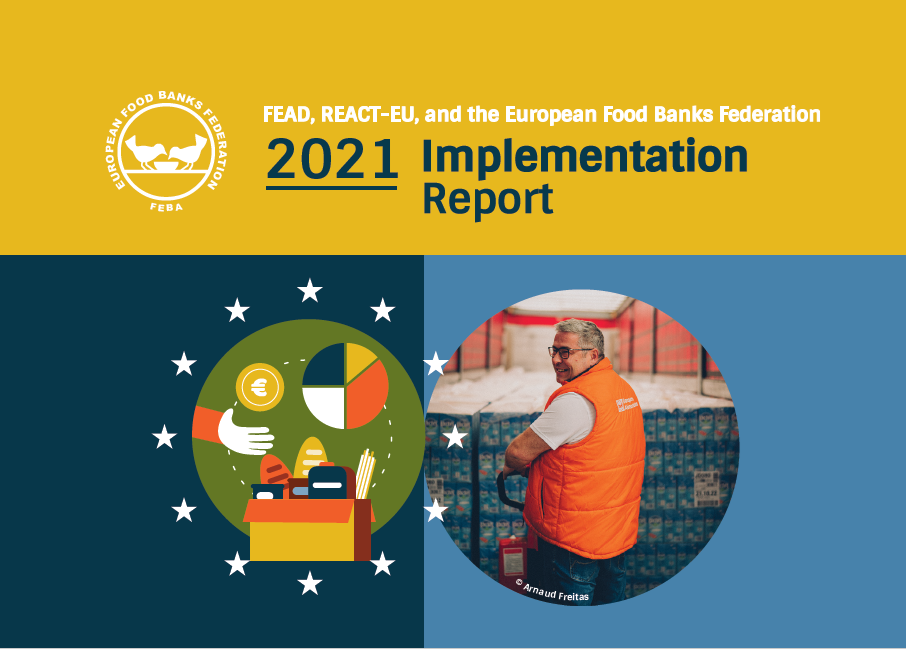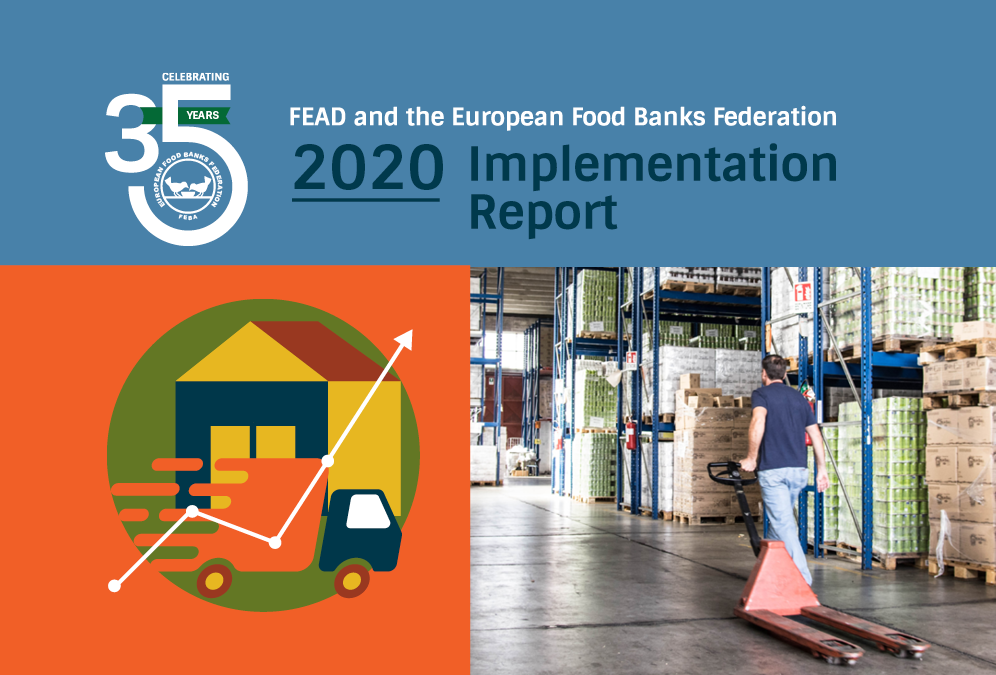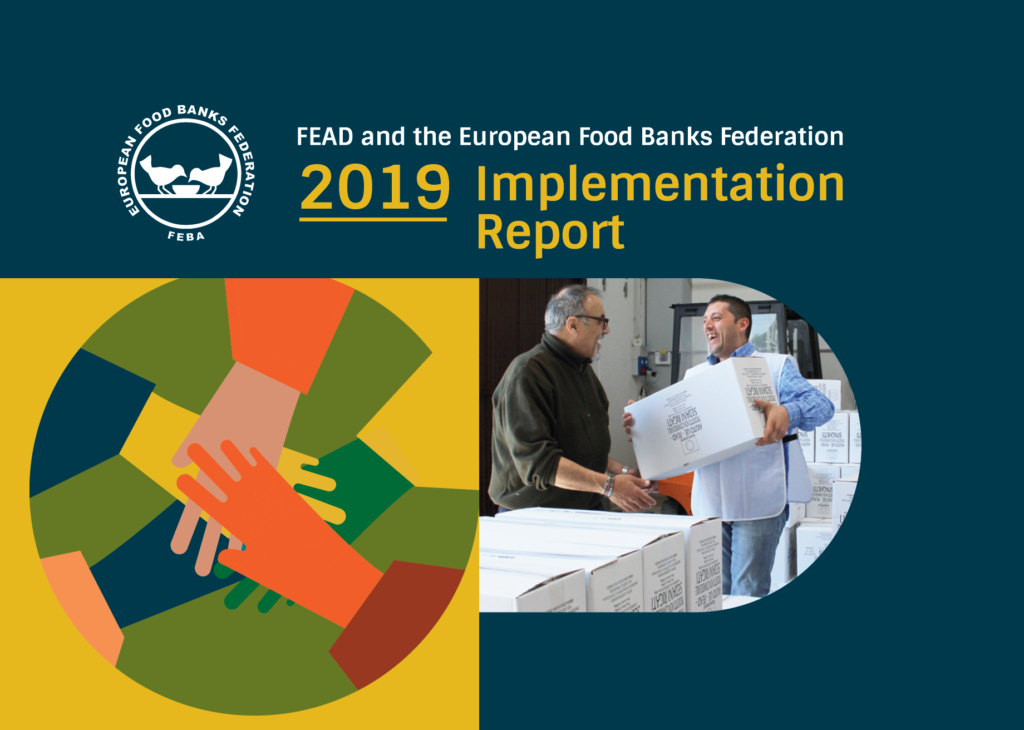Activities of our members
FEBA Members are daily committed to prevent food waste and reduce food insecurity.
They recover safe and edible surplus food from food business operators and transport, sort, store, and redistribute it to a network of affiliated and qualified charitable organisations including charities, social restaurants, soup kitchens, shelters, etc.
They can also redistribute produce withdrawn from the market, food from the Fund for European Aid to the Most Deprived, and food from individual or corporate collections.
The food is sometimes processed and prepared in meals which are provided to charitable organisations.
In some countries, in particular Estonia, Germany and the Netherlands, the food is redistributed not only to other charitable organisations but also provided directly to end beneficiaries.
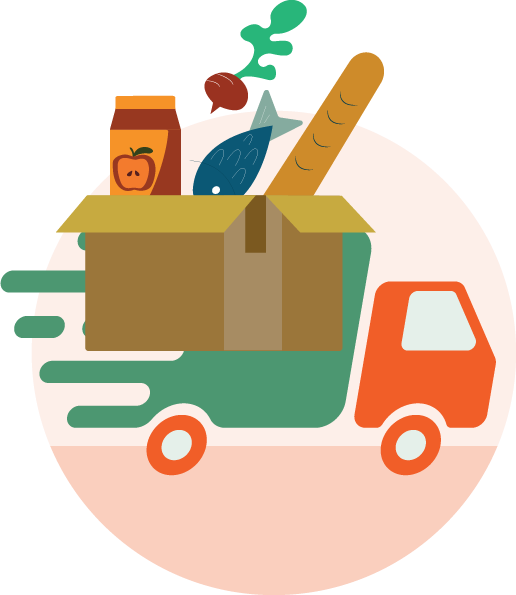
Prevention of food waste through the recovery of surplus food
Surplus food is edible and safe food that for various reasons is not purchased or consumed by customers or people for whom it was produced, processed, distributed, served or purchased. It can be donated by food and drink manufacturers, retailers, wholesalers, food service, etc.
Food donation is a beneficial solution to prevent food waste and reduce food insecurity: it is a business friendly, environmentally sensitive, and socially responsible alternative. Food donation is the best destination when surplus food occurs because it ensures the highest value use of edible food resources for human consumption.
The publication and dissemination of the EU Guidelines on food donation by the European Commission was extremely important to foster the recovery and redistribution of surplus food.
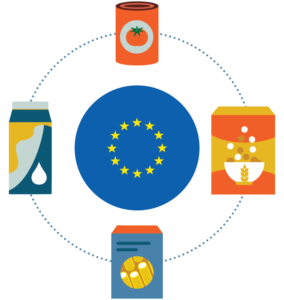
The European Social Fund Plus (ESF+) and the European Food Banks
ESF+ is a European Union programme seeking to support the social policies of Member States. It merges four previously separated funding initiatives, among them the Fund for the European Aid to the Most Deprived (FEAD), which was used to tackle the worst forms of poverty through material support in the programming period 2014-2020.
It has a budget of nearly EUR 90 billion over the period 2021-2027, of which a minimum of 3% must be dedicated to material support. Many EU Member States have chosen to use this money to buy food and non-food items for the benefit of the most deprived and to redistribute it through Food Banks or other charitable organisations.
Although the core mission of FEBA Members consists in preventing food waste and reducing food insecurity through the recovery and redistribution of safe and good food rescued from becoming food waste, ESF+ represents a complementary source of supply to the surplus food recovered from the food business operators, and also to other channels such as fruits and vegetables withdrawn from the market and items received through food collections.
To learn more about the ESF+, you can go to the dedicated EU website.
More in-depth information on the specific funding mechanisms at the EU level addressing food insecurity and poverty in Europe, and the implementation in the different Member States, can be found in the resources listed below.
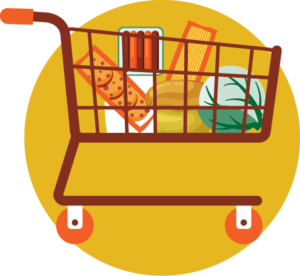
Food collections: an essential activity of the European Food Banks
Every year, usually at the end of November – early December, many FEBA Members organise a national Food Collection in collaboration with retailers. During this occasion, citizens are invited to make a gesture of solidarity by purchasing food when they are grocery shopping and donating it to the Food Banks. Food Collections are only made possible by the collaboration of thousands of supermarkets and retailers and the mobilization of hundreds of thousands of volunteers and millions of citizens.
Considering Europe has been heavily impacted by the effects of climate change, the COVID-19 pandemic, and the war in Ukraine, especially at this moment in time Food Collections are extremely important to collect specific food products and raise awareness among the citizens about food waste and food insecurity.
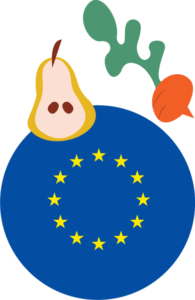
EU and national withdrawn produce
This activity consists in receiving and redistributing produce withdrawn from the market for free distribution (price stabilization mechanism) in the framework of EU and/or national programmes.


